
The Heartbeat of Sheffield: City Centre
Nestled in the vibrant city of Sheffield, the City Centre is a bustling hub of culture, history, and modernity. This dynamic neighbourhood is where the old meets the new, creating a unique blend that captivates every visitor. As you stroll through its streets, you’ll encounter a mix of historic architecture, contemporary shopping spots, and an array of dining options that offer both local and international flavors. One of the main attractions here is the Sheffield Cathedral, a stunning piece of history that dates back to the 12th century. It stands as a testament to the city's rich heritage and offers a peaceful retreat from the busy streets. Just a short walk away, you’ll find the Millennium Gallery, a must-visit for art enthusiasts. This gallery not only showcases local art but also hosts international exhibitions, making it a cultural hotspot. For those looking to indulge in some retail therapy, Fargate and The Moor are the go-to destinations. These pedestrian-friendly streets are lined with a variety of shops, from high-street brands to independent boutiques. The Moor Market, in particular, is a treasure trove of fresh produce, artisanal goods, and unique finds that you won’t want to miss. And when it comes to dining, the City Centre doesn’t disappoint. Whether you’re in the mood for a traditional British meal or something more exotic, you’ll find it all here. In the evening, the City Centre transforms into a lively entertainment district. The Crucible and Lyceum Theatres offer a range of performances, from classic plays to modern productions. And if you’re a music lover, the O2 Academy and Leadmill are iconic venues that host both local talents and big-name acts. With so much to see and do, the City Centre of Sheffield promises an unforgettable experience for every traveler.
Local tips in City Centre
- Wear comfortable shoes; the City Centre is best explored on foot.
- Visit the Millennium Gallery on a weekday to avoid the weekend crowds.
- Check the local theatre schedules in advance to catch a live performance.
- Explore The Moor Market for unique souvenirs and local delicacies.
- Take advantage of the free entry to Sheffield Cathedral and enjoy its serene atmosphere.
The Heartbeat of Sheffield: City Centre
Nestled in the vibrant city of Sheffield, the City Centre is a bustling hub of culture, history, and modernity. This dynamic neighbourhood is where the old meets the new, creating a unique blend that captivates every visitor. As you stroll through its streets, you’ll encounter a mix of historic architecture, contemporary shopping spots, and an array of dining options that offer both local and international flavors. One of the main attractions here is the Sheffield Cathedral, a stunning piece of history that dates back to the 12th century. It stands as a testament to the city's rich heritage and offers a peaceful retreat from the busy streets. Just a short walk away, you’ll find the Millennium Gallery, a must-visit for art enthusiasts. This gallery not only showcases local art but also hosts international exhibitions, making it a cultural hotspot. For those looking to indulge in some retail therapy, Fargate and The Moor are the go-to destinations. These pedestrian-friendly streets are lined with a variety of shops, from high-street brands to independent boutiques. The Moor Market, in particular, is a treasure trove of fresh produce, artisanal goods, and unique finds that you won’t want to miss. And when it comes to dining, the City Centre doesn’t disappoint. Whether you’re in the mood for a traditional British meal or something more exotic, you’ll find it all here. In the evening, the City Centre transforms into a lively entertainment district. The Crucible and Lyceum Theatres offer a range of performances, from classic plays to modern productions. And if you’re a music lover, the O2 Academy and Leadmill are iconic venues that host both local talents and big-name acts. With so much to see and do, the City Centre of Sheffield promises an unforgettable experience for every traveler.
Iconic landmarks you can’t miss
Botanical Gardens
Explore the Beauty of Nature at Sheffield's Stunning Botanical Gardens - A Perfect Escape for Tourists and Nature Lovers Alike.
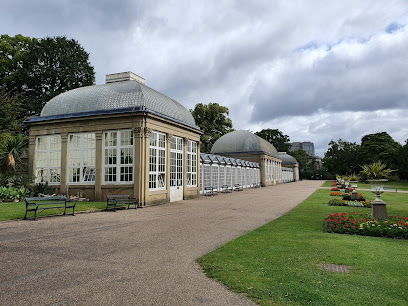
Peace Gardens
Experience the tranquility of Peace Gardens, a beautiful city park in Sheffield, perfect for relaxation, picnics, and enjoying nature amidst urban surroundings.
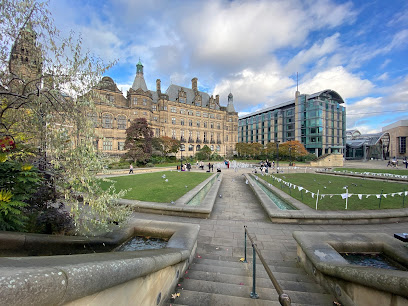
Sheffield Cathedral
Discover over 1,000 years of history, faith, and art in Sheffield’s oldest building, a vibrant cathedral at the heart of the city.
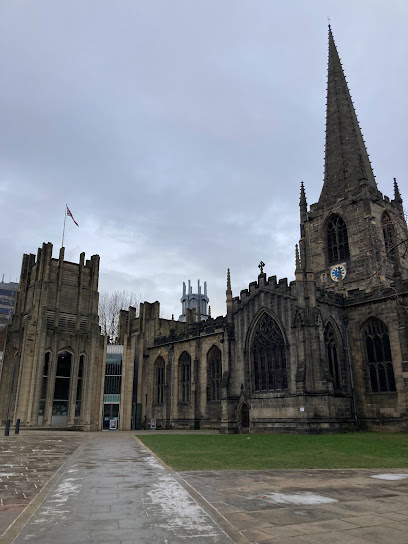
Sheffield Town Hall
Explore Sheffield Town Hall, a stunning Victorian architectural jewel and a vibrant hub of local culture and history in the heart of Sheffield.
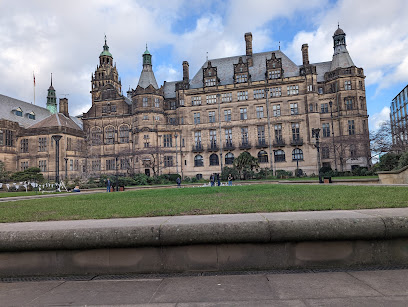
Sheaf Square
Experience the vibrant culture and welcoming atmosphere of Sheaf Square in Sheffield, where modern architecture meets lush greenery.
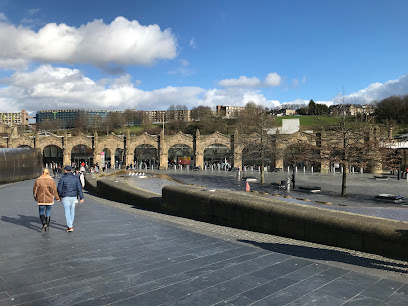
Millennium Square
Explore the vibrant Millennium Square in Sheffield, a lively hub of culture, events, and urban charm, perfect for relaxation and socializing.
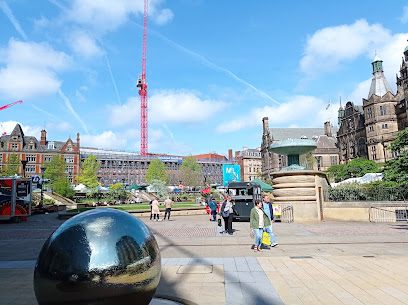
Fargate
Explore Fargate, Sheffield's vibrant pedestrian street filled with shopping, dining, and rich cultural experiences in the heart of the city.
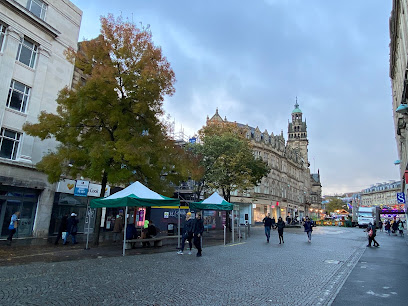
Crucible Stack
Explore Sheffield’s iconic Crucible Stack, a rare industrial landmark embodying the city’s pioneering steelmaking heritage and architectural resilience.
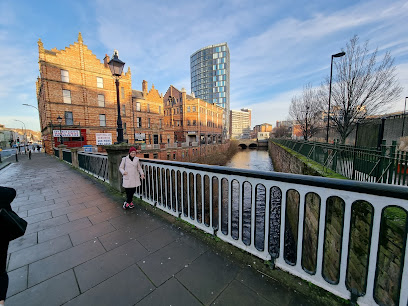
King Edward VII Statue
A majestic bronze tribute to King Edward VII, standing proudly in Sheffield’s historic Fitzalan Square, blending regal artistry with rich local heritage.
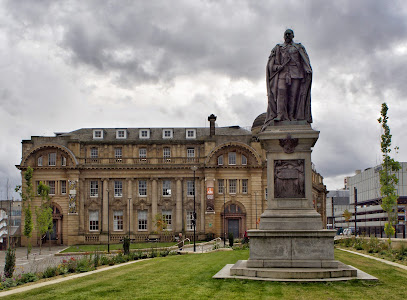
Sheffield Town Twinning, Commonwealth Bench
A peaceful urban landmark celebrating Sheffield’s international friendships and cultural exchange through its Commonwealth Bench.
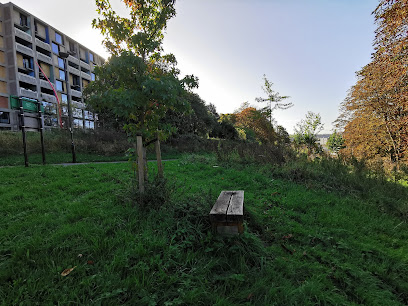
Unmissable attractions to see
Weston Park Museum
Explore Sheffield’s rich heritage and natural wonders in Weston Park Museum’s historic halls and vibrant galleries.
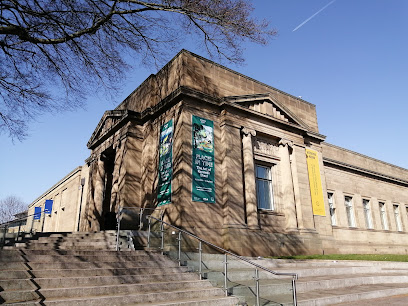
The National Videogame Museum
Explore 50 years of videogame history with over 100 playable exhibits in Sheffield’s unique, family-friendly National Videogame Museum.
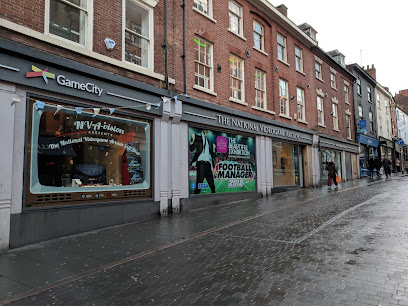
Millennium Square
A vibrant modern square at Sheffield’s heart, blending culture, community events, and urban life in a lively city centre setting.

Essential places to dine
Smoke BBQ
Experience authentic American pit-smoked barbecue with bold flavors and generous portions in Sheffield’s vibrant city centre.
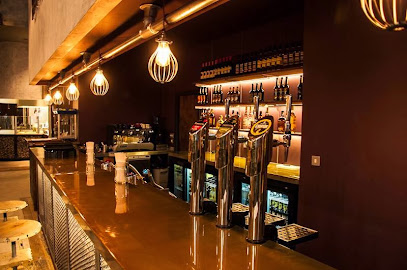
Piccolino Sheffield
Experience authentic Italian flavors and chic alfresco dining in the heart of Sheffield’s Millennium Square at Piccolino.
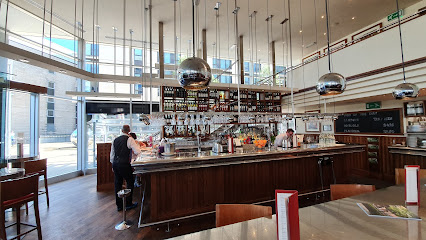
Bella Italia - Sheffield St Paul's
Enjoy authentic Italian flavors with vegan and gluten-free options in a welcoming, casual setting at Bella Italia Sheffield St Paul's.
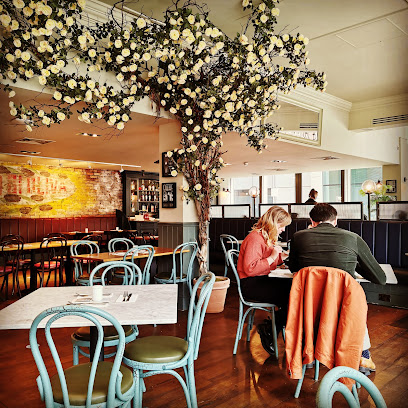
Ego Mediterranean Restaurant & Bar, Sheffield
A vibrant Mediterranean dining spot in Sheffield city centre offering fresh, inclusive menus with friendly service and a lively atmosphere.
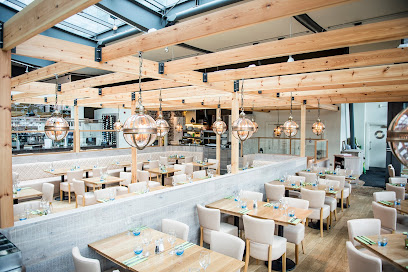
The Botanist Sheffield
A lush, botanical-themed bar and restaurant in Sheffield city centre offering inventive cocktails, hearty meals, live music, and a vibrant social scene.
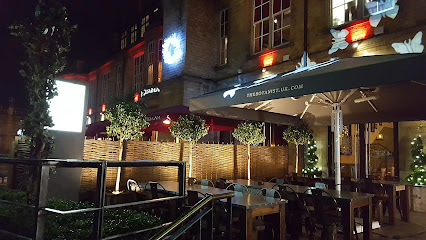
ASK Italian
Modern Italian dining in Sheffield city centre with authentic flavors, inclusive menus, and a warm, stylish atmosphere.
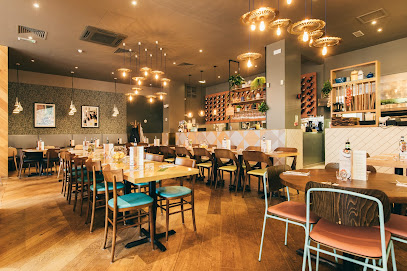
Silversmiths
Refined modern British dining with a Yorkshire twist in a stylish, historic Sheffield setting.
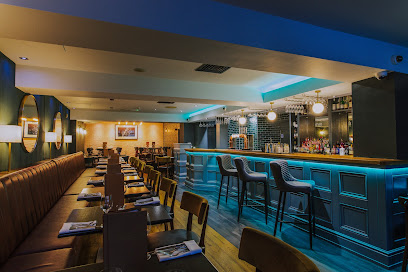
VeroGusto
Experience authentic Neapolitan cuisine and exceptional Italian wines in a charming Georgian townhouse at the heart of Sheffield.
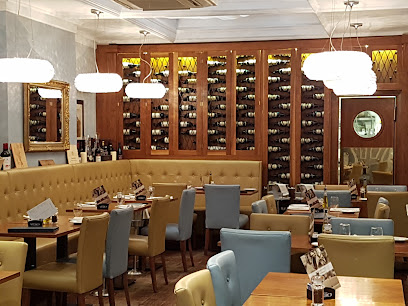
Grazie
Authentic Southern Italian flavors and homemade pasta in Sheffield’s vibrant city centre, blending tradition with fresh, local ingredients.
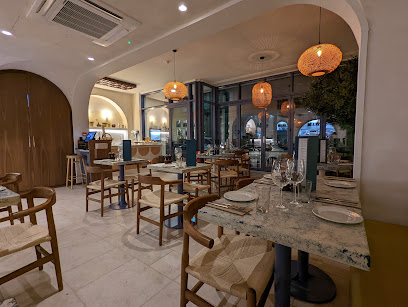
BB’s
Authentic family-run Italian dining in the heart of Sheffield, known for generous seafood pasta and a warm, intimate atmosphere.
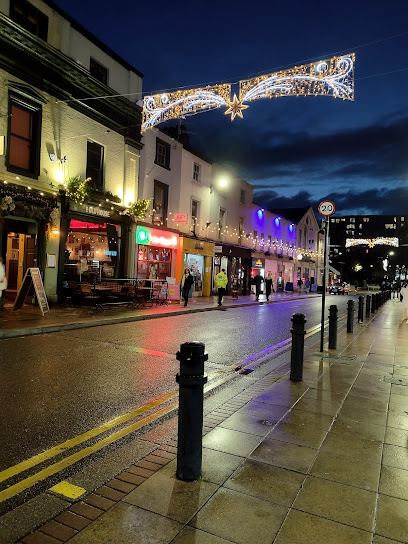
Markets, malls and hidden boutiques
Orchard Square
Explore Orchard Square, Sheffield's vibrant shopping centre, offering a delightful mix of high-street brands, unique boutiques, and charming cafés.
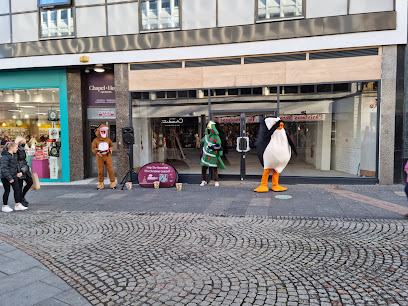
The Alternative Store
Fiercely independent since 1992, discover unique streetwear, hats, and jewellery for the everyday alternative in Sheffield's creative heart.
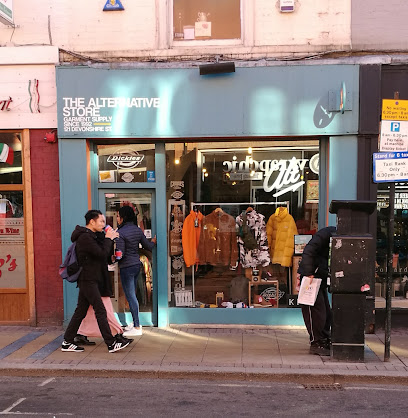
Søstrene Grene
A cosy Scandinavian-style boutique in Sheffield city centre for homewares, stationery and craft-inspired finds.
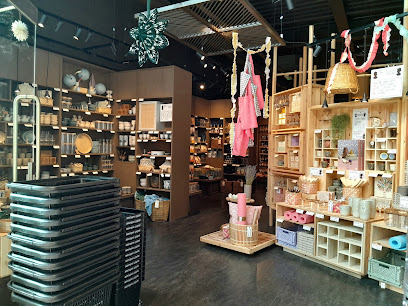
Bird’s Yard Sheffield
An award-winning indie haven on Chapel Walk, brimming with quirky gifts, local crafts, and global curios from over 70 designers – Sheffield’s ultimate treasure trove.
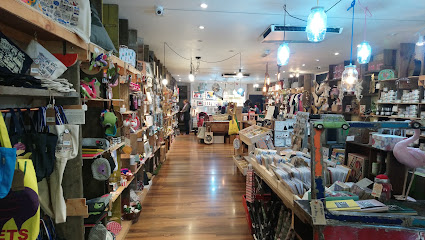
Within Reason
Discover quirky gifts, jewelry, toys, and home treasures at this independent Sheffield gem on Devonshire Street—unique finds for every occasion.
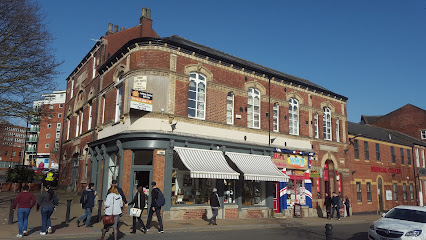
Glass Onion Sheffield
Dive into Sheffield's premier vintage treasure trove on Division Street, where 100,000+ weekly arrivals yield curated secondhand gems, upcycled delights, and sustainable style from Barnsley's coal-shed origins.
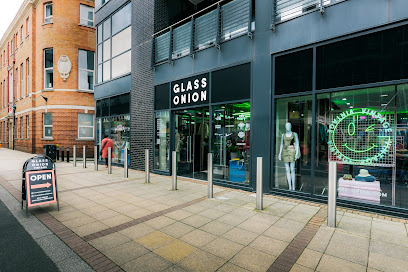
Sheffield Makers
Discover Sheffield's handmade soul in the Winter Garden: unique gifts from local makers, blending craft heritage with fresh creativity.
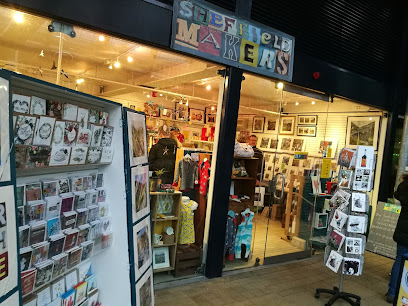
Sheffield Convenience Store
Your go-to convenience store in Sheffield City Centre for snacks, drinks, and travel essentials, open late night for all your needs.
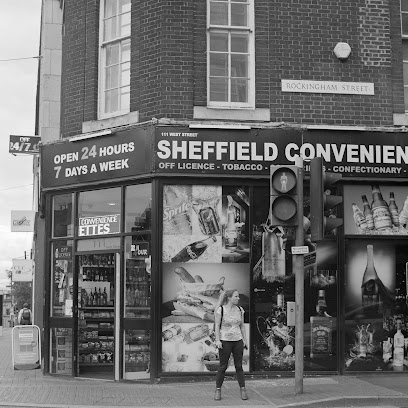
Shady Gifts
Handmade, sarcastic and drag‑inspired gifts in a compact Sheffield city‑centre shop — bold slogans, local design and small‑batch novelty items.

Devonshire Quarter
Explore the vibrant Devonshire Quarter in Sheffield, where unique boutiques and creative gifts await you in an artistic urban setting.
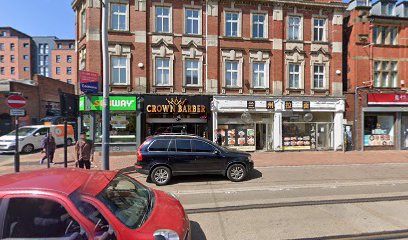
Essential bars & hidden hideouts
The Head of Steam Sheffield
A converted Victorian bank turned busy craft‑beer pub on Tudor Square — big beer list, good vegan choices and a social, theatre‑friendly vibe.
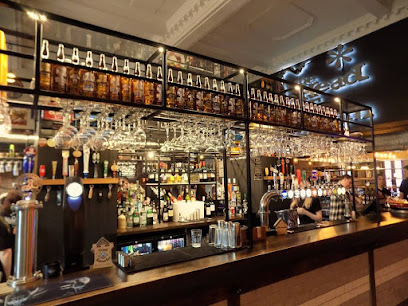
Yates - Sheffield
Sheffield's all-day dynamo: daytime pub grub and sports, nighttime DJ beats and cocktails in the city centre buzz.
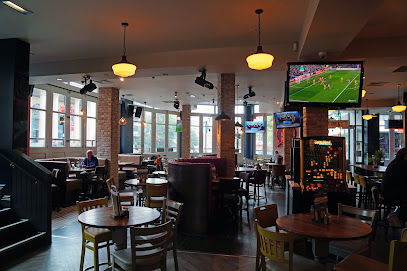
The Botanist Sheffield
Discover Sheffield's lush botanical bar and restaurant, where plant-filled spaces host live music, hanging kebabs, inventive cocktails, and seasonal feasts in Charter Square.
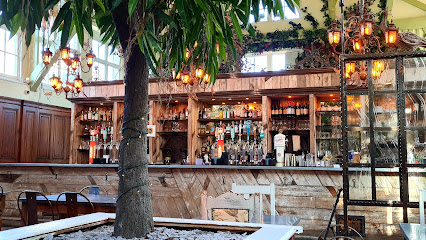
Slug & Lettuce - Sheffield
Vibrant Sheffield cocktail bar where every hour feels like happy hour—brunch by day, cocktails and dancing by night in stylish city centre surrounds.
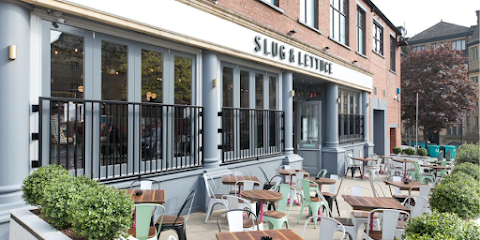
Kuckoo Sheffield
Inventive cocktails and pulsating beats define this Leopold Square gem, where Sheffield's nightlife ignites in a whirlwind of creativity and energy.
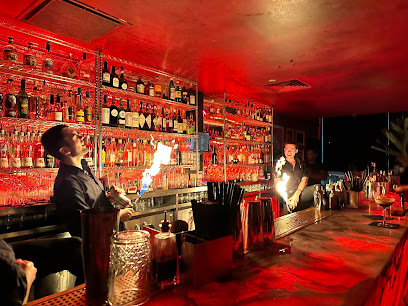
All Bar One Sheffield
Stylish Sheffield wine bar on Leopold Street for tapas, cocktails, brunch, and urban vibes near theatres and shops.
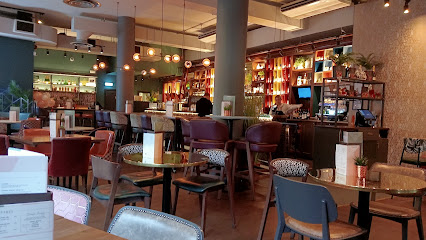
The Furnace - Sheffield
An energetic city-centre bar & grill in Charter Square with shareable plates, cocktails and a sunny terrace for social nights out.
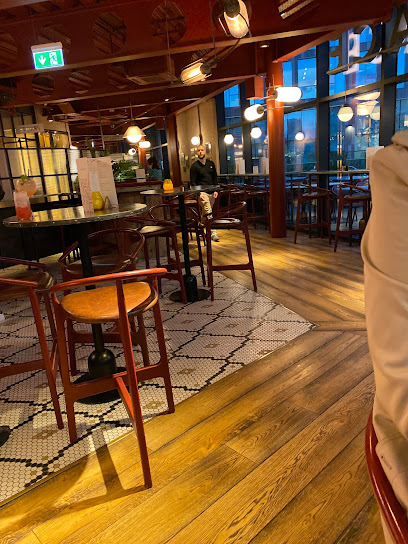
The Wick at Both Ends
A warm, unpretentious cocktail bar in Sheffield city centre serving crafted drinks, lively music and a social, rustic interior.
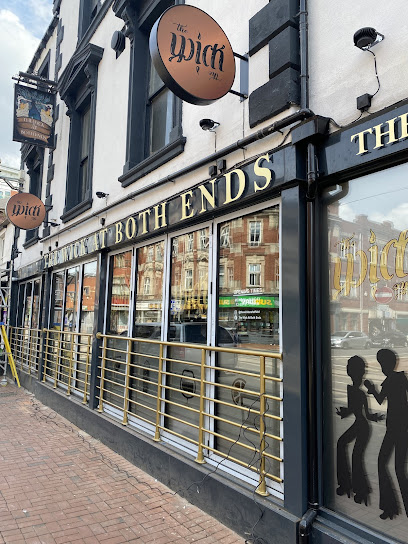
Trippets Lounge Bar
Sheffield's intimate jazz lounge where live music, gins, and tapas-style plates create an unforgettable evening retreat in the city centre.
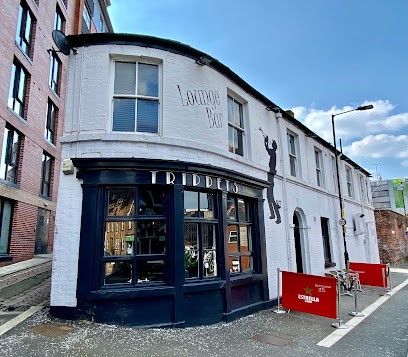
Public
Quirky underground cocktail haven in a repurposed Victorian toilet—creative drinks, intimate vibes, and Sheffield's inventive spirit in every sip.
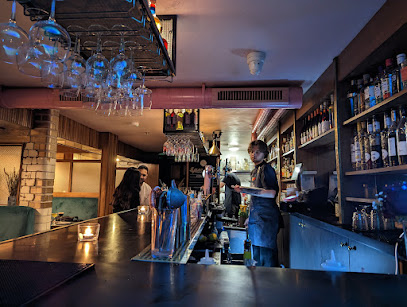
Local Phrases
-
- HelloAlright
[al-right] - GoodbyeTa ra
[ta-ra] - YesAye
[eye] - NoNah
[nah] - Please/You're welcomeTa
[ta] - Thank youCheers
[cheers] - Excuse me/SorrySorry
[sor-ry] - How are you?Alright?
[al-right] - Fine. And you?Sound. And you?
[sound. an-d you?] - Do you speak English?Do you speak English?
[Do you speak English?] - I don't understandI don't get it
[I don't get it]
- HelloAlright
-
- I'd like to see the menu, pleaseCan I see the menu, please
[Can I see the menu, please] - I don't eat meatI don't eat meat
[I don't eat meat] - Cheers!Cheers!
[Cheers!] - I would like to pay, pleaseCan I pay, please
[Can I pay, please]
- I'd like to see the menu, pleaseCan I see the menu, please
-
- Help!Help!
[Help!] - Go away!Clear off!
[Clear off!] - Call the Police!Ring the Old Bill!
[Ring the Old Bill!] - Call a doctor!Get a doctor!
[Get a doctor!] - I'm lostI'm all over the place
[I'm all over the place] - I'm illI'm poorly
[I'm poorly]
- Help!Help!
-
- I'd like to buy...I'm looking to buy...
[I'm looking to buy...] - I'm just lookingJust browsing
[Just browsing] - How much is it?How much is that?
[How much is that?] - That's too expensiveThat's a bit dear
[That's a bit dear] - Can you lower the price?Can you do it cheaper?
[Can you do it cheaper?]
- I'd like to buy...I'm looking to buy...
-
- What time is it?What's the time?
[What's the time?] - It's one o'clockIt's one
[It's one] - Half past (10)Half ten
[Half ten] - MorningMorning
[Morning] - AfternoonAfternoon
[Afternoon] - EveningEvening
[Evening] - YesterdayYesterday
[Yesterday] - TodayToday
[Today] - TomorrowTomorrow
[Tomorrow] - 1One
[One] - 2Two
[Two] - 3Three
[Three] - 4Four
[Four] - 5Five
[Five] - 6Six
[Six] - 7Seven
[Seven] - 8Eight
[Eight] - 9Nine
[Nine] - 10Ten
[Ten]
- What time is it?What's the time?
-
- Where's a/the...?Where's the...?
[Where's the...?] - What's the address?What's the address?
[What's the address?] - Can you show me (on the map)?Can you show me (on the map)?
[Can you show me (on the map)?] - When's the next (bus)?When's the next (bus)?
[When's the next (bus)?] - A ticket (to ....)A ticket (to ....)
[A ticket (to ....)]
- Where's a/the...?Where's the...?
History of City Centre
-
The City Centre of Sheffield has its origins in the early medieval period, around the 8th century, when the settlement began to develop around the confluence of the River Sheaf and the River Don. The name 'Sheffield' is derived from the Old English 'sceaf', meaning 'sheaf field', which indicates the agricultural roots of the area. The establishment of the Sheffield Castle in the 11th century marked a significant point in the neighborhood's development, serving as a defense and administrative center.
-
The 18th century ushered in the Industrial Revolution, transforming Sheffield into a bustling industrial hub, particularly known for its steel production. The City Centre became the focal point for trade and commerce, with innovations like crucible steel production enhancing Sheffield's reputation. This period saw the establishment of numerous workshops and factories, attracting a workforce from across the region and contributing to the city's rapid growth.
-
The 19th century was a pivotal time for the cultural landscape of Sheffield City Centre. The establishment of institutions such as the Sheffield Public Library in 1832 and the formation of the Sheffield Art Society in 1856 reflect the growing emphasis on education and the arts. The city also became known for its music and theatre, with venues like the Lyceum Theatre opening its doors, fostering a vibrant cultural scene.
-
During World War II, Sheffield's industrial significance made it a target for bombing raids, resulting in significant destruction in the City Centre. However, the post-war period saw a determined effort to rebuild and modernize. The reconstruction initiatives of the 1950s and 1960s led to the development of new public spaces and infrastructure, including the iconic St Paul's Parade and the rejuvenation of the shopping district.
-
In the late 20th and early 21st centuries, Sheffield City Centre underwent significant regeneration efforts aimed at revitalizing the urban landscape. The introduction of the Peace Gardens and the Millennium Gallery in the 1990s showcased a commitment to public art and green spaces. Today, the City Centre reflects a blend of historical architecture and modern developments, serving as a vibrant cultural and commercial hub that represents the diverse identity of Sheffield.
City Centre Essentials
-
City Centre is easily accessible from various neighborhoods in Sheffield. From the train station, you can take a short walk or hop on a tram. Buses frequently run from areas like Hillsborough, Meadowhall, and Ecclesall Road, making it convenient to reach the City Centre. If you’re coming from further afield, the nearest major airport is Manchester Airport, which is about 40 miles away. From there, you can take a train to Sheffield Station, which is centrally located.
-
City Centre is compact and pedestrian-friendly, making it ideal for exploring on foot. Public transport options include the Supertram, which links various parts of the city, and numerous bus services. Bicycles are also a popular choice, with bike hire schemes available. Taxis and ride-sharing services are readily accessible for those preferring a quicker mode of transport.
-
City Centre is generally safe for tourists, but it is advisable to stay vigilant, especially at night. Areas such as some parts of the St. Mary's Gate and the outskirts of the city might have higher crime rates. Always keep an eye on your belongings in crowded places and avoid poorly lit areas after dark.
-
In case of an emergency, dial 999 for police, fire, or medical assistance. The main hospital is the Northern General Hospital, which can handle emergencies. It is advisable to have travel insurance that covers medical needs. For minor health concerns, there are pharmacies located throughout the City Centre.
-
Fashion: Do dress appropriately for the weather. Casual and comfortable attire is widely accepted. Don’t wear overly revealing clothing in religious sites. Religion: Do respect local customs, particularly if visiting a church or mosque. Public Transport: Do give up your seat for elderly passengers. Don’t eat or drink on public transport. Greetings: Do greet with a smile and a nod. A handshake is common. Eating & Drinking: Do try local food and drinks, especially in restaurants. Don’t waste food, as it is considered disrespectful.
-
To experience City Centre like a local, visit the Moor Market for a taste of local produce and crafts. Engage with shopkeepers and locals at independent cafes and boutiques. Check out events at the Crucible Theatre or the Lyceum Theatre for a taste of local culture. Don't miss the opportunity to explore the street art around the Cultural Industries Quarter for a unique perspective on the city's creativity.
Nearby Cities to City Centre
-
Things To Do in Leeds
-
Things To Do in Nottingham
-
Things To Do in Manchester
-
Things To Do in York
-
Things To Do in Chester
-
Things To Do in Liverpool
-
Things To Do in Birmingham
-
Things To Do in Stratford-upon-Avon
-
Things To Do in Durham
-
Things To Do in Cambridge
-
Things To Do in Newcastle upon Tyne
-
Things To Do in Oxford
-
Things To Do in Laxey
-
Things To Do in Onchan
-
Things To Do in Douglas













